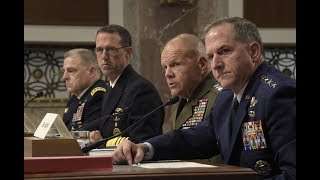
Also occurring last week were the violent protests in Charlottesville, Virginia, on and around the campus of the University of Virginia. One of the results of those protests and clashes was that a woman, Heather Heyer, was seemingly struck, in cold blood, by a gentleman, who was later identified as James Alex Fields, using his vehicle as a weapon.
The response to the attacker was nearly universally visceral with leaders of both parties, most analysts, and most mainstream citizens denouncing the attack and the pro-Nazi ideals that he and the larger movement stood for. One of the most prominent divergences from that nearly uniform response was made by the President, who made several statements oscillating between placing blame on both sides and denouncing Nazism and white supremacy movements by calling them repugnant. These statements, and the timing of them, received a substantial amount of negative response, drawing criticism from a number of analysts and others.
One of the more curious responses was interesting not for what was said, but for who said it. Shortly after the protests and attack on Saturday, the Chief of Naval Operations - the most senior officer assigned in the Department of the Navy and the Deputy to the Secretary of the Navy - quickly tweeted the below response even before the President's response.
Events in Charlottesville unacceptable & musnt be tolerated @USNavy forever stands against intolerance & hatred...https://t.co/tg0cETibaq
— Adm. John Richardson (@CNORichardson) August 13, 2017
A few days later, and after the President's response, a series of senior military officials publicly responded with the following tweets by, respectively, GEN Neller, the Commandant of the Marine Corps, GEN Milley, the Chief of Staff of the Army, GEN Goldfein, the Chief of Staff of the Air Force, and GEN Lengyel, the Chief of the National Guard Bureau.
No place for racial hatred or extremism in @USMC. Our core values of Honor, Courage, and Commitment frame the way Marines live and act.
— Robert B. Neller (@GenRobertNeller) August 15, 2017
The Army doesn't tolerate racism, extremism, or hatred in our ranks. It's against our Values and everything we've stood for since 1775.
— GEN Mark A. Milley (@ArmyChiefStaff) August 16, 2017
I stand with my fellow service chiefs in saying we're always stronger together-it's who we are as #Airmen pic.twitter.com/9XxOry93nf
— Gen. Dave Goldfein (@GenDaveGoldfein) August 16, 2017
I stand with my fellow Joint Chiefs in condemning racism, extremism & hatred. Our diversity is our strength. #NationalGuard
— Gen. Joseph Lengyel (@ChiefNGB) August 16, 2017
In quick succession, the Service Chiefs articulated their condemnation of racism, extremism, and hatred. While these statements are consistent with the laws and regulations governing the military, wherein each of the services has a means of separating from the Service individuals who espouse racist or extremist ideas, the more curious fact is not what was said, so much as who said it.
It is the military leaders, who took an oath to support and defend the Constitution, and to obey all lawful orders from their commanders that spoke before and after the Commander-in-Chief did. Now, each of the leaders that spoke were clear to note that they were not involving themselves in domestic politics, but that they were aiming their comments at those currently in their respective service and to the public, which comprises potential future recruits. However, the effect of outspokenness is clear - there was a message sent that was separate from obsequiousness and blind obedience. Certainly, no rational analysis can consider tweets as a harbinger of military revolt, but the responses after Charlottesville by military leaders stand for the clear proposition that there is separation between the Executive and the leaders of the military; that the military has its own morality, code, and sense of professionalism that is independent from the Commander-in-Chief, regardless of party.

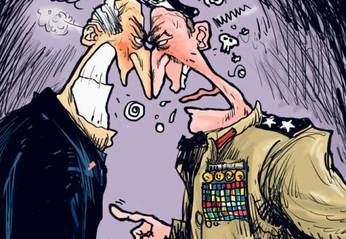
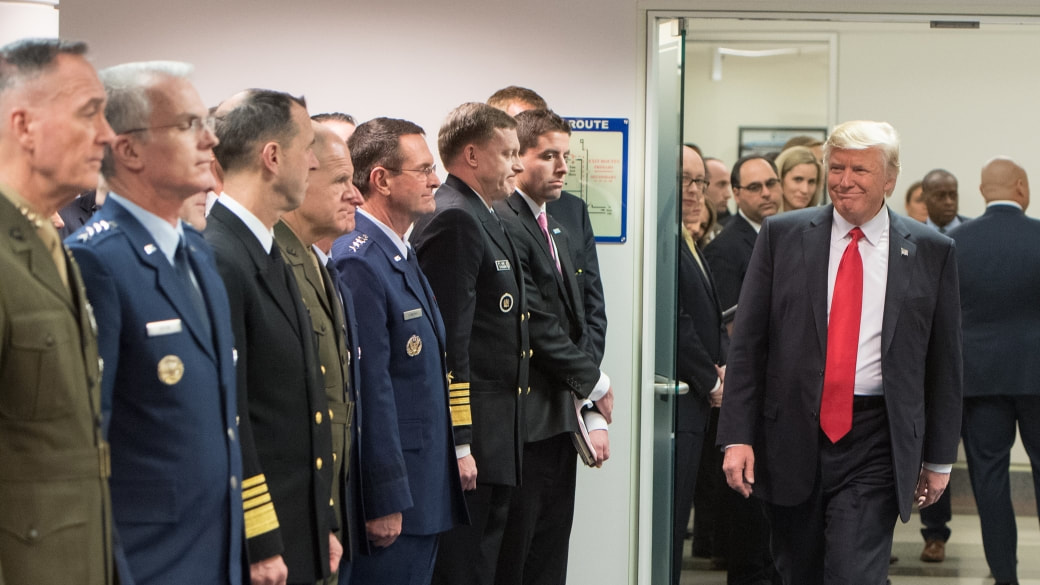
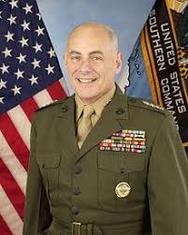
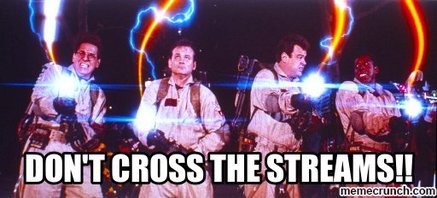
 RSS Feed
RSS Feed
